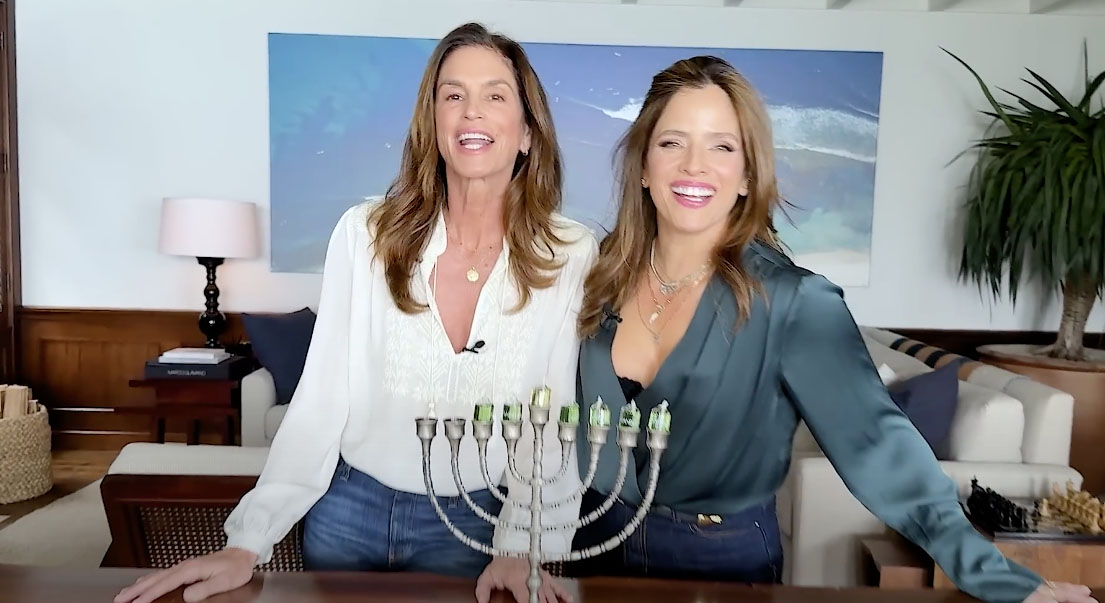
Kosher Ahoy!
Should you eat it as a sandwich, or break it apart and eat thecookie part separately from the cream?
Kosher-observant Jews will now be faced with that classic Americandilemma with the historic koshering of the Oreo, billed by makerNabisco as America’s favorite cookie.
It’s all part of a move by the Nabisco Biscuit Co. to make kosherdozens of its cookie and snack products.
Nabisco quietly has signed a contract with the Orthodox Union, theinternational kosher certification group, to supervise the kosherproduction of such longtime company staples as Chips Ahoy, Barnum’sAnimal Crackers, Fig Newtons, Social Tea Biscuits and Honey MaidGrahams. Ritz items except for Ritz Bits sandwiches will be kosher,and eventually the Premium saltine crackers will be.
For thousands of Jewish kids who grew up in the ’50s and ’60s notbeing able to eat Oreos, that most American of snacks, the Nabiscoannouncement marks a symbolic shift in American attitudes towardsaccommodation to Jewish religious observance.
”While I’m not Jewish, I can’t imagine growing up in America notbeing able to eat an Oreo cookie,” Murphy said.
Nabisco’s efforts to kosher its line and tap into the fast-growingkosher food industry — now estimated at $3.25 billion a year — arenearly seven years in the making with research beginning in 1991.
It took so long to finalize the project because the company soughtto kosher cost-effectively the baking process at its 12 plantsnationwide, Murphy said.
Perhaps the most significant step came in 1992 with the removal oflard from the company’s baked products, replacing it with vegetableoil. –Eric J. Greenberg and Stewart Ain , New York JewishWeek
Vanishing Jewish Lawyer
When a press release arrived at our offices for a seminarentitled, “The Vanishing Jewish Lawyer,” we assumed April 1 cameearly this year.
But the flier went on to quote that ur-Jewish lawyer himself,Harvard Law Professor Alan Dershowitz, whose article in the Septemberissue of American Lawyer claims that an astonishing 40 percent of the”premier” lawyers in New York and Washington are Jewish. That in anation where Jews make up only two percent of the population. And,according to Dershowitz, thanks to lower birth rates, higherintermarriage rates, and a higher level of assimilation among Jews,these numbers are shrinking rapidly.
So, is our decrease in population going to lead to a shortage ofJewish lawyers? Furthermore, will this disappearance affect thesocial conscience of the legal profession?
In front of an audience filled primarily with Jewish lawyers, agroup of Jewish legal experts convened by the University of Judaism’sSolomon Society met last week to debate the issue. The impressivepanel, moderated by attorney and former U.S. Rep. Mel Levine,included Rabbi Elliot Dorff, attorneys Bruce Hochman, HowardFriedman, and Patricia Glaser, and Associate Dean for AcademicAffairs at Loyola Law School, Laurie Levenson.
Bottom line: nobody on the panel agreed with Dershowitz, thoughFriedman and Dorff acknowledged he raised an important issue.
There is no uniquely Jewish way of being a lawyer, and Jewishlawyers don’t hold the premium for upholding ethical behavior, agreedthe panelists.
“There is no Jewishly authentic viewpoint; i.e. politicalliberlaism,” said Friedman. “It is required that we are involved, butnot that we adhere to a certain view. To be advocates of the systemis the ultimate Jewish responsibility.”
While Hochman argued that the Talmudic tract, “Justice, justiceshall thou pursue” does impact the psyche of the Jewish lawyer,Levenson said most of the Jewish students at her Jesuit law school”don’t turn to Dershowitz as their spiritual leader. What does itmean to be a Jewish lawyer? To be just like him? That is a dangerousmodel.”
Dorff disagreed as well with the article, but thought thatDershowitz’s concerns about the Jewish future should not be ignored.”If you take anyting from this evening,” he said, half-jokingly ” youshould go home and have more children!”
However, the real debate revolves around the impact of what itmeans to be a Jew in the legal profession. Glazer, who grew up inCharleston, West Virginia, where “following Jewish dietary laws meantbeing on a diet,” found the article to be completely irrelevant. “Istruggle with what it means to be a Jew, not a Jewish lawyer.” –Roni Blau
Giving H.O.P.E.
Nothing can make mourning easy, but going through it with othershelps considerably. For almost 20 years now, people have been turningto the H.O.P.E. Unit Foundation for just that kind of help andsupport.
These days, H.O.P.E. has launched an all-out fund-raising campaignin an effort to keep its doors open. Founded in 1979, theorganization has offered a variety of support groups for peoplesuffering through the loss of a loved one, or the loss of their ownhealth.
About 100 people gather at Valley Beth Shalom synagogue everyThursday evening for six different bereavement groups offered, eachled by a licensed thearapist.
Other sessions, held at Encino Tarzana Regional Medical Center,include groups on family loss, offering support to siblings andparents, creative visualization, offering stress management andrelaxation to cancer patients, and “Moving On,” for graduates of thebreavement program. In the future, the organization will offer abereavement group for teens and expansion of its well-known widows/widowers group in outlying areas.
VBS Rabbi Harold Schulweis, vice-president of H.O.P.E., wrote, “Ihave witnessed the skill and compassion of [H.O.P.E.] therapists asthey guide the wounded through the valley of the shadow into thelight of life. “
At least 95 percent of H.O.P.E. participants are Jewish, saidexecutive director Dr. Marilyn Stolzman. A H.O.P.E.-sponsored surveyfound that fully one-third of its session participants wereaffiliated with 23 different synagogues in the L.A. area. “Meetingunmet community needs has always been a priority,” said Stolzman.But, she added, because H.O.P.E. is not a synagogue program,attracting grants from Jewish funding sources has been difficult. “Weneed help from the Jewish community,” she told Up Front, “and we needit now.”
For donations and more information write H.O.P.E. Unit Foundation,P.O. Box 8034, Calabasas, CA 91272-8034. (818) 788-HOPE. — StaffReport
Happy Birthday, Canters

Loyal customers (and bargain hunters) flooded Canter’s Deli onFairfax Avenue last Monday as the nine Canter family members who runthe institution celebrated its 50th birthday by rolling back the costof a corned beef sandwich to the good old 1948 price: 50 cents.”Fifty years is a long time,” said Jaqueline Canter. “We wanted to dosomething special.”

Photos by Shlomit Levy





















 More news and opinions than at a Shabbat dinner, right in your inbox.
More news and opinions than at a Shabbat dinner, right in your inbox.